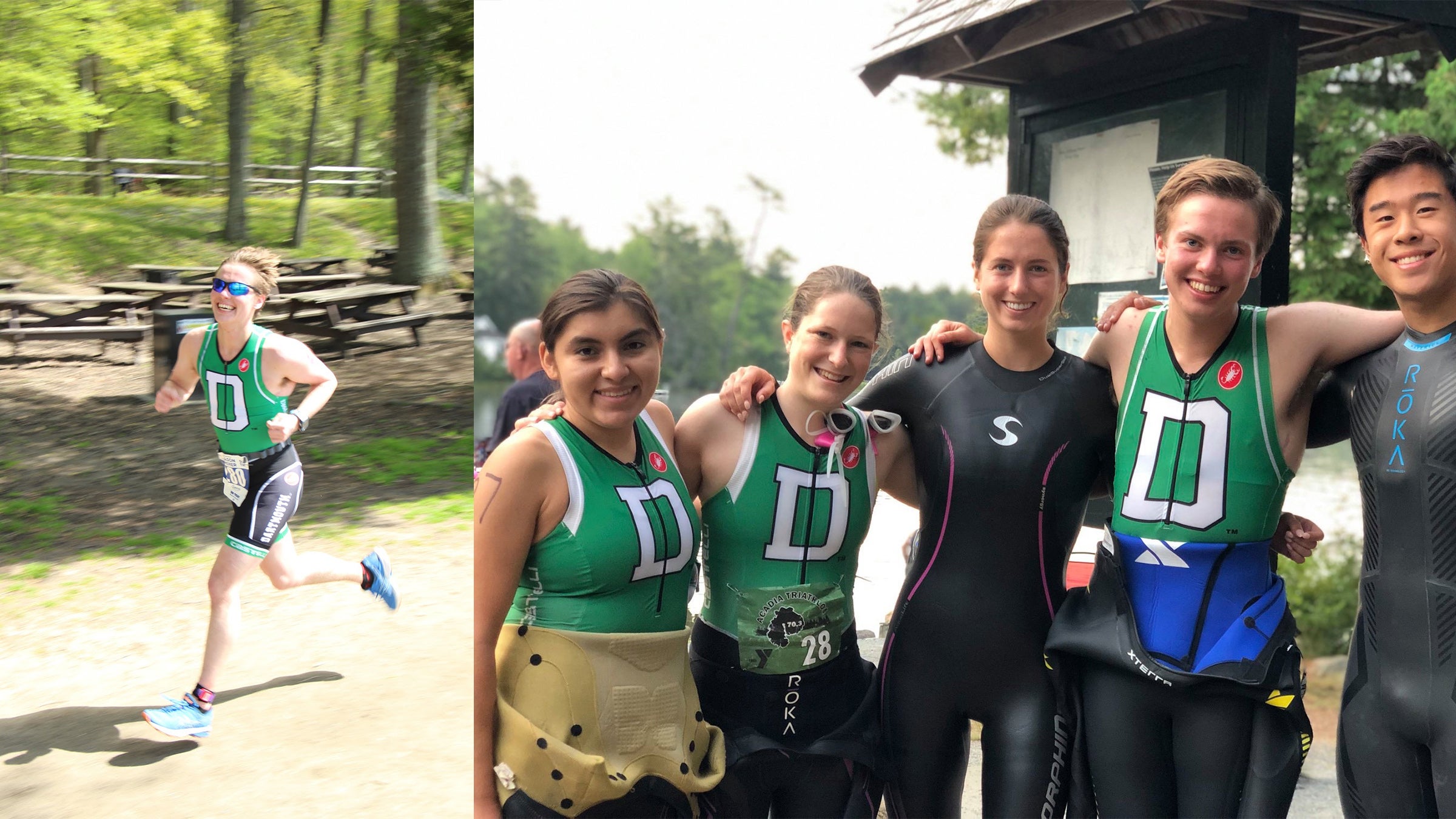Not Here to Win—As A Transgender Athlete, I Belong in Triathlon

(Photo: Courtesy of Colin Goodbred)
I’m a terribly mediocre triathlete. I’m never going to be fast enough to qualify for Kona, though I did once win my age group at a race (and I usually avoid mentioning the fact that there were only five other people in my category). But despite my unremarkable race results, some people consider my presence in the sport to be a threat to their own opportunities for success. After all, I am ostensibly one of those scary transgender athletes, who decided to change genders simply in order to win fame, scholarships, and sponsorship.
Of course, if that was my goal, I’d be failing pretty miserably. Fortunately for my career prospects and self-esteem, I have very different reasons for doing triathlons.
The same is true for the vast majority of transgender athletes, just like it is true for the vast majority of cisgender (meaning non-transgender) athletes. Research has shown that transgender women who were average competitors in men’s categories before transitioning are usually average competitors in women’s categories afterwards as well. Of course, there is a small subset of triathletes who are aiming to earn a pro card and make a living in triathlon. Likewise, there are a few incredibly talented and hard-working transgender athletes who boast impressive times, accomplishments, and records. But most of us, regardless of our gender identities, are involved in sports simply to challenge ourselves, live more active lives, get outside, become a part of a team, explore our own boundaries, and find new joys in life.
Triathlon has had a particularly important impact on me as a transgender person. Two years after beginning my social and medical transition at age 17, I started getting involved with my college triathlon team. When I started training, I couldn’t even run a mile and felt immensely frustrated with myself and my body. Before then, it’d been difficult for me to feel any sense of ownership about a body that didn’t feel like it was mine. As a result, I had previously avoided sports, in part because they made me hyper-aware of my body.
But, with the support of my family, friends, doctors, and a therapist, my gender transition helped me to feel at home in my identity. I felt connected to my body, and I felt that making investments in myself and my happiness and health were worthwhile. And so I began running and soon afterwards expanded to swimming and biking as well. My workouts, even the exhausting and painful ones, helped me feel like I could regain control and agency over my body, pushing myself to reach new milestones. I’ve learned to love the experience of long slow weekend runs, the satisfaction of speeding down hills on my bike after an exhausting climb, and the exhilaration of diving into a cold pond.
Each person has their own reasons for getting involved in sports at all levels, whether we want to play soccer in elementary school for the shiny trophies, get in shape to finish our first 5K, or qualify for the Olympics. Regardless of our reasons for loving our sport, though, I hope that all people feel the confidence and joy that I have felt. I hope they are free and welcomed to train and compete in communities that celebrate and respect who they are as individuals. That has been perhaps one of the most special aspects of getting involved in triathlons: my team has always welcomed me with open arms exactly as I am. As a member of my college’s co-ed team, I have known that I will always be a part of the community, regardless of my gender identity. No one has ever asked me about the scars on my chest at swim practices. No one has ever questioned which gender category I sign up for at races. No one has discounted my successes or highlighted my failures due to my gender. I wish there was never a question as to whether trans people feel safe in sports, but I feel lucky that I do feel safe on my team and in my triathlon community.
Triathlon isn’t a safe haven for all, though, free from bias and inequality. There are still a distinct lack of options for non-binary competitors, ongoing underrepresentation of BIPOC athletes, and often insurmountable financial barriers to the sport. I have been immensely privileged in my identity as a white man, who is usually not visibly identified as being transgender. And while I have found triathlon to be transformational, many others have not had such a positive experience. It is up to those of us who feel that we are a part of this community to thoughtfully reflect on our own shortcomings and actively work to make triathlon more inclusive and equitable.
Despite these challenges, our sport and so many other sports offer tremendous opportunities for individuals of many different identities. The vast majority of us train and race for fun, not to seek out careers as professional athletes. To those professional and aspiring-professional transgender athletes: Congratulations on all your hard work and accomplishments! You are already inspiring young people to lead happy and health lives, regardless of their gender identity. And to the many of us who train and compete for the mere joy of it: Let’s not limit the joys of our sport to just a subset of the population. Let’s work to make our triathlon community one that celebrates the possibilities for triathlon to improve the lives of athletes of all religions, races, abilities, sexualities, and genders.
Colin Goodbred competes on the Dartmouth club triathlon team, and was one of over 500 student-athletes who signed a letter urging the NCAA not to hold championship events in states with bans on trans athletes competing.
RELATED: The Triathlete Hour Podcast: Chris Mosier Wants to Be a Role Model for Trans Kids